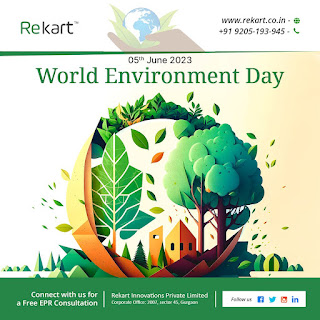Hey there, fellow Earth enthusiasts! It’s that time of the year again when we come together to celebrate and appreciate the incredible planet we call home. Yes, you guessed it right — World Environment Day! This year, on June 5th, we gather to raise awareness, take action, and rejoice in the beauty and resilience of our environment. So, grab your reusable water bottle, put on your eco-friendly hat, and let’s dive into the history, theme, and significance of World Environment Day 2023!
The History: World Environment Day has been observed annually since 1974, thanks to the initiative of the United Nations. It serves as a global platform for promoting environmental awareness and encouraging positive change. Each year, the day is hosted by a different country, with diverse activities and events taking place worldwide. This year, we are fortunate to have Australia as our gracious host, emphasizing the urgent need for collective efforts in preserving our delicate ecosystems.
The Theme: “Resilient Earth, Resilient Us”: The theme for World Environment Day 2023, “Resilient Earth, Resilient Us,” reminds us of the interconnectedness between humanity and the environment. It recognizes the crucial role that a healthy planet plays in ensuring our well-being, prosperity, and survival. The theme also acknowledges the incredible resilience of nature in the face of numerous challenges, encouraging us to take inspiration and learn from its strength.
The Significance: World Environment Day provides us with an opportunity to reflect on the current state of our environment and the impact of our actions. It serves as a reminder that we hold the power to make a positive change in our daily lives and communities. This day encourages us to reevaluate our consumption patterns, embrace sustainable practices, and support initiatives that protect our natural resources.
Engaging in Action: While celebrating World Environment Day is undoubtedly important, it is equally vital to take concrete actions that contribute to a healthier planet. Here are some engaging ways to get involved:
- Plant a Tree: Trees are nature’s superheroes, providing us with clean air, shade, and habitat for wildlife. Grab a shovel and get your hands dirty by planting a tree in your backyard or joining a local tree-planting initiative.
- Reduce, Reuse, Recycle: Take a closer look at your daily habits and find opportunities to reduce waste. Embrace reusable products, recycle diligently, and opt for eco-friendly alternatives whenever possible.
- Spread Awareness: Utilize the power of your voice and social media to raise awareness about environmental issues. Share informative articles, photos, and tips to inspire your friends, family, and followers to take action.
- Get Outdoors: Connect with nature by exploring your local parks, beaches, or hiking trails. Take a moment to appreciate the wonders of the natural world and the need to protect them.
- Support Sustainable Initiatives: Research and support organizations, businesses, and individuals that are working towards sustainable practices and environmental conservation. Your contribution, no matter how small, can make a significant impact.
Conclusion: As we celebrate World Environment Day 2023, let’s remember that our actions today shape the world of tomorrow. By acknowledging the resilience of our planet and recognizing our role in its well-being, we can collectively create a brighter, greener future. So, let’s stand united, engage in meaningful action, and celebrate our beautiful Earth, not just on June 5th but every single day. Together, we can make a difference!

Comments
Post a Comment